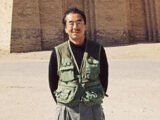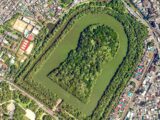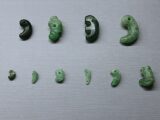The Last Ninja vs. the Great Prophet: The Untold Story of Japan's Epic Taisho-Era Occult Showdown
The Last Ninja vs. the Great Prophet: The Untold Story of Japan’s Epic Taisho-Era Occult Showdown
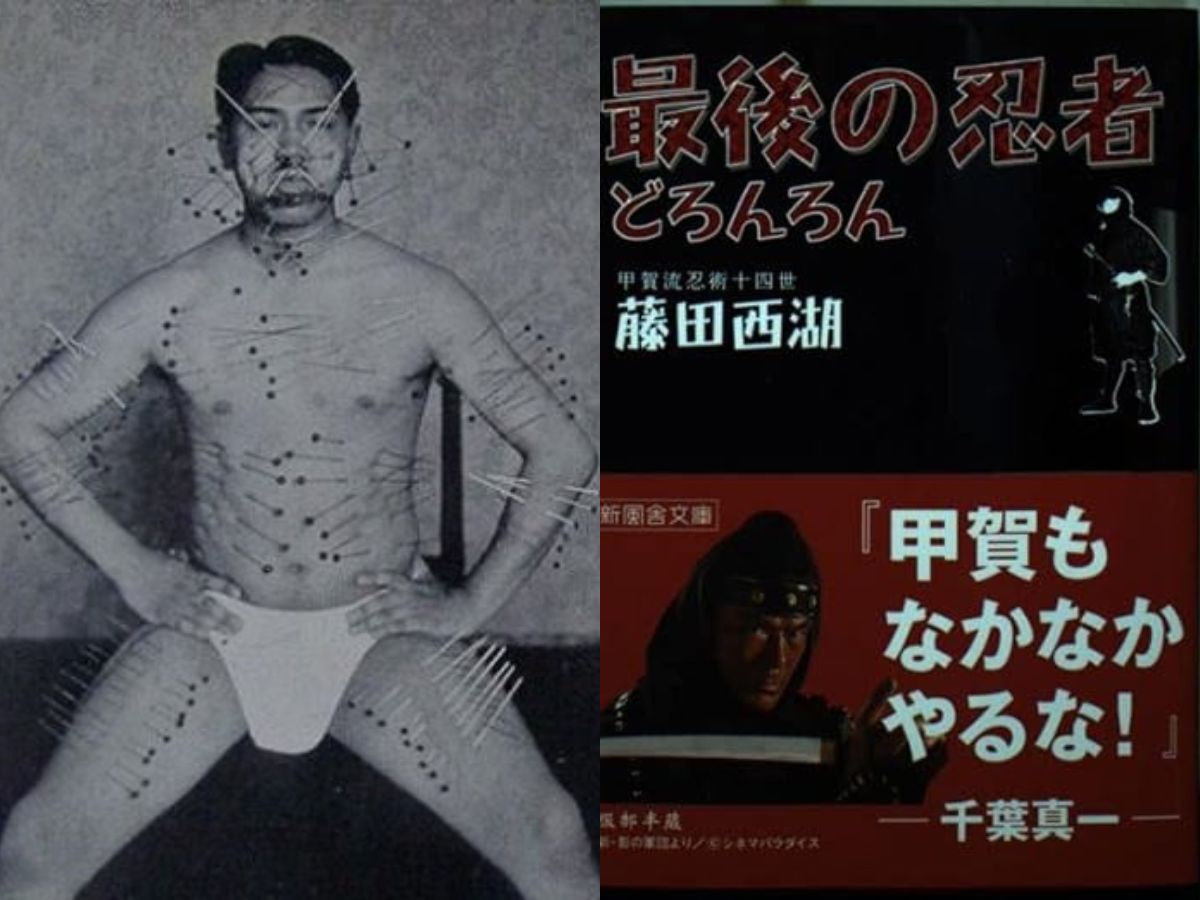
In the annals of strange history, few tales are as compelling as a real-life showdown between a self-proclaimed prophet and one of Japan’s last true ninjas. This incredible story, set in the fascinating Taisho era (1912-1926)—a period of rapid modernization and lingering mysticism in Japan—unravels the elaborate tricks of a charismatic cult leader and the daring espionage of a ninja determined to expose the truth.
The Great Prophet “Aunbarama”
His name was Koho Nishida, but he was known to his followers by his Sanskrit moniker, “Aunbarama.” In the early 20th century, Aunbarama was a sensation. From his lavish mansion in Tokyo, he held court, claiming to be an incarnation of Buddha himself. A portly, goat-bearded man draped in purple robes and a diamond-studded golden crown, he captivated a legion of devout followers, scholars, and wealthy patrons.
Aunbarama’s fame rested on two incredible abilities: performing miracles and predicting the future. He could seemingly materialize busshari (sacred relics of the Buddha) from his mouth or pull them from the heads of his guests. He could also retreat to his study, claiming to receive “divine inspiration from Shakyamuni,” and return in minutes with beautifully written, complex Buddhist scriptures, seemingly channeled from a higher plane.
But his most astonishing “gift” was his ability to predict major world events with pinpoint accuracy. When a major news story broke—such as the assassination of Japan’s first Prime Minister, Ito Hirobumi, in 1909—Aunbarama would calmly call for his old diaries. He would then open a volume from years prior and show his astonished audience a precise, dated entry foretelling the event. For example, he “predicted” the signing of the Treaty of Versailles on June 28, 1919, by showing an entry in his diary from two years earlier, dated June 28, which read, “The peace treaty will be signed on this exact day two years hence.”
His reputation grew so immense that he was even invited to the sacred Mount Koya, the headquarters of Shingon Buddhism, where he performed his miracles before the highest-ranking monks in the land. To his followers, he was a living god. But one young man was not convinced.

Enter the Ninja: Seiko Fujita
In 1919, a 21-year-old man named Seiko Fujita, who claimed to be a descendant of the Koga ninja clan, came to meet the great prophet. Fujita was not just a self-proclaimed ninja; he was also an investigative journalist for the Tokyo Nichi Nichi Shimbun (the predecessor to the Mainichi Shimbun). He immediately sensed that something was amiss with Aunbarama’s “miracles.”
Trusting his instincts and his ancestral skills, Fujita decided to investigate. He used his ninjutsu techniques to infiltrate Aunbarama’s heavily guarded mansion, seeking to uncover the prophet’s secrets.
What he discovered was a masterpiece of simple, yet brilliant, deception.
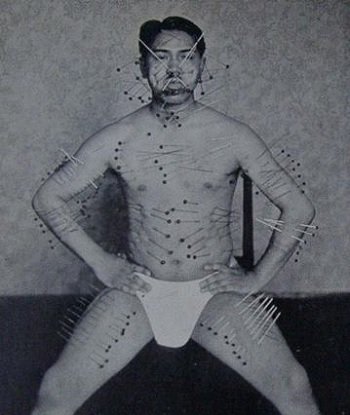
The Prophet’s Secret, Exposed
Fujita found that Aunbarama’s routine was a carefully orchestrated sham. The prophet would secretly wake up at 6:00 AM, read the day’s newspapers, and then carefully re-fold them to look untouched. He would then take one of his old diaries and, using a blank page or empty space, write a “prophecy” corresponding to the day’s headlines, meticulously dating it years in the past. After his work was done, he would return to bed and “wake up” late in the morning to stun his followers with his “predictions.”
The other miracles were also simple tricks. The instantly written scriptures were prepared in advance, with only the final few characters left to be filled in with fresh ink. And the magical appearance of sacred relics? Fujita discovered that Aunbarama had been a member of a traveling magic troupe in his youth. It was all sleight of hand.
Fujita published his explosive findings in a series of articles for the newspaper. The public was shocked. The great prophet’s reputation shattered overnight, and Aunbarama was eventually arrested for fraud.
The story of the last ninja and the false prophet is a timeless reminder that in a world of wonders, a healthy dose of skepticism is essential. While true mysteries exist, history is also filled with charismatic figures who prey on belief. Sometimes, it takes a ninja’s cunning to see through the smoke and mirrors.
※ Unauthorized reproduction, video creation, and uploading of this article's content to YouTube, blogs, or other platforms is strictly prohibited.
Related Articles

The Impossible Guns of the Battleship Yamato: A Lost WWII Super-Technology?

The Emperor’s Secret: Does Japan’s Largest Tomb Hold Proof of the Lost Tribes of Israel?

The “White Zero”: Japan’s Ghost Fighter That Haunted the Skies of WWII

The Impossible Hole: Is This Ancient Japanese Jewel a Prehistoric OOPArt?
Popular Series
This is the page for The Last Ninja vs. the Great Prophet: The Untold Story of Japan’s Epic Taisho-Era Occult Showdown. Find the latest news about Ninja, Prophet, JapaneseHistory and more on TOCANA - the paranormal news media that stimulates your curiosity
Urban Legends Latest Articles
The Definitive Guide to Japan's Scariest Urban Legends: From Kuchisake-Onna to Kisaragi Station
2025.10.20 23:00 Urban LegendsKunekune: The Definitive Guide to Japan's Terrifying, Twisting Field Monster
2025.10.19 23:00 Urban LegendsNNN Special Broadcast: The Definitive Guide to Japan's Lost, Lethal TV Broadcast
2025.10.14 23:00 Urban Legends